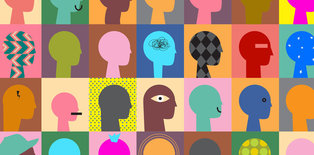It’s in Us to Teach Gratitude to Our Children

It’s in our awareness
“The unexamined life is not worth living.” ~ Socrates
Writing this piece gave me the opportunity to examine the messages I received regarding gratitude as I was growing up. Did I develop gratitude as a child or did it come later in life? I learned my manners; definitely. I thanked people for gifts, wrote thank you notes and returned kindnesses; all seemingly grateful sentiments but being polite and grateful are not one in the same. Case in point, how many of us received socks from a relative at Christmas and said thank you as a kid but didn’t really appreciate them until we were older and then looking forward to receiving a fresh value pack full of them?
Sheepishly, I’ll admit true gratitude came later in life for me; way later. It came when I stopped complaining about the rain and debt and not finding Mr. Right after my divorce. (Take a moment here to fill in the blank for your complaints and be honest because I’m from New England and I know if you’re reading this in my area then you complain about the snow all winter, heat all summer, potholes, and every driver on the road except you!)
For me gratitude came when I gave up the need for the outside world to be a certain way, so I could feel peace inside. Gratitude came when I accepted what was happening without the expectation that “they” behave “better” so I could feel better. Gratitude came when I took responsibility for how I responded to what was happening instead of trying to control it. And this I believe to be true; we cannot teach our children gratitude without genuinely feeling it ourselves. We simply won’t behave in grateful ways and guess who they are watching!
It’s in our delivery
“Your children will see what you're all about by what you live rather than what you say.” ~ Wayne Dyer
The mantras of my childhood were things like, “money doesn’t grow on trees” and “finish your plate, in other countries kids are starving.” And not just from my family mind you. Everyone in my world, from teachers to preachers gave the same message. I believe these attempts at teaching us to be grateful fell short. What were the messages? Were they telling us to be grateful for what we had and ask no more? The intended message was buried in lack and limitation. What we were told was there is not enough money, not enough food and to settle (gratefully) for what we had even if it meant ignoring our own body’s response that we had eaten enough. The gratitude was inferred. It’s time to change our language and help children change theirs.
I am a huge proponent of self-love, self-examination, and personal accountability at any stage in life but when you’re a parent I believe the stakes are higher. I don’t know how to teach children about gratitude without first becoming aware of the messages we give them in our moment to moment interactions. This is why it is essential for us to be checking in with our own emotions throughout the day. Am I pouting because I feel inconvenienced by weather declaring, “I can’t believe I have to shovel again, I don’t have time for this!” Or reframing with gratitude and bringing the beauty of the snow to the attention of my children?
It’s how we support them
"Do the best you can until you know better. Then when you know better, do better." ~ Maya Angelou
If there is a hidden agenda in this push for self-awareness and role modeling, it comes out of desperation as a single parent. Emotional growth and improved behavior is good for me as an individual. If the consequence of my growth serves as good role modeling for my children then I’m doing my job through my behavior because it is what serves as the lessons. I say this because I don’t want anyone to feel like they are failing as a parent if they are not using structured tools, projects or protocols to teach their children gratitude. Those things are wonderful and I offer them here if that is useful to you. But know that you are a powerful teacher and enough on your own.
As my children were growing I would ask, “How was your day?” What response do you suppose I received? “Good.” That could have been the end of the conversation, however the therapist in me always had a follow up question, “What was good about it?” As my children grew, I continued to ask the question but knowing me as they do, they would pause, “Hang on…. I’m thinking what was good about it.” The new norm became an expanded conversation about the day and allowed for deeper connections with them.
I encourage you to have the conversations and utilize the tools that suit you; examine your own attitudes and become an observer of your own behaviors; make changes, grow and practice gratitude in your daily life so you can model that for those around you. Our moment to moment behaviors determine who we are to the world and nobody watches us more closely than our children.
Lifespan Living Newsletter
Instilling Gratitude in Children

Listen to the Podcast
Jamie Turcotte, a licensed mental health counselor in the SafeQuest Program at Bradley Hospital, talks about how parents and caregivers can help to instill gratitude in children in a recent episode of Bradley Hospital's Mindcast.
Find a Doctor

The right provider is in our network
Search more than 1,200 providers in our network.



